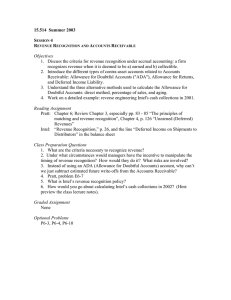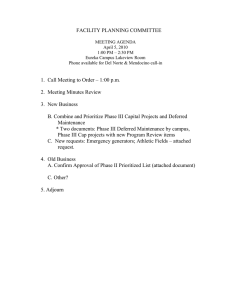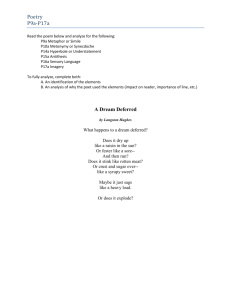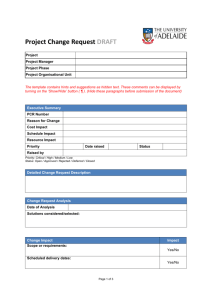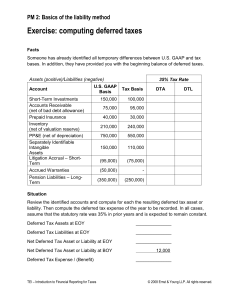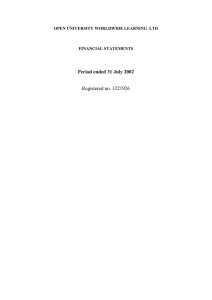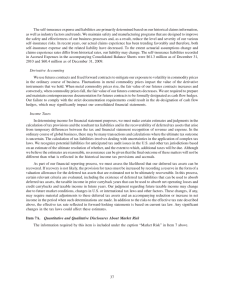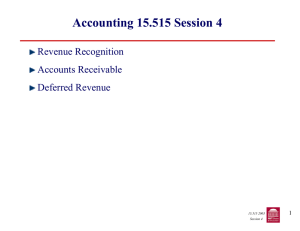15.514 S 2003 S 11
advertisement
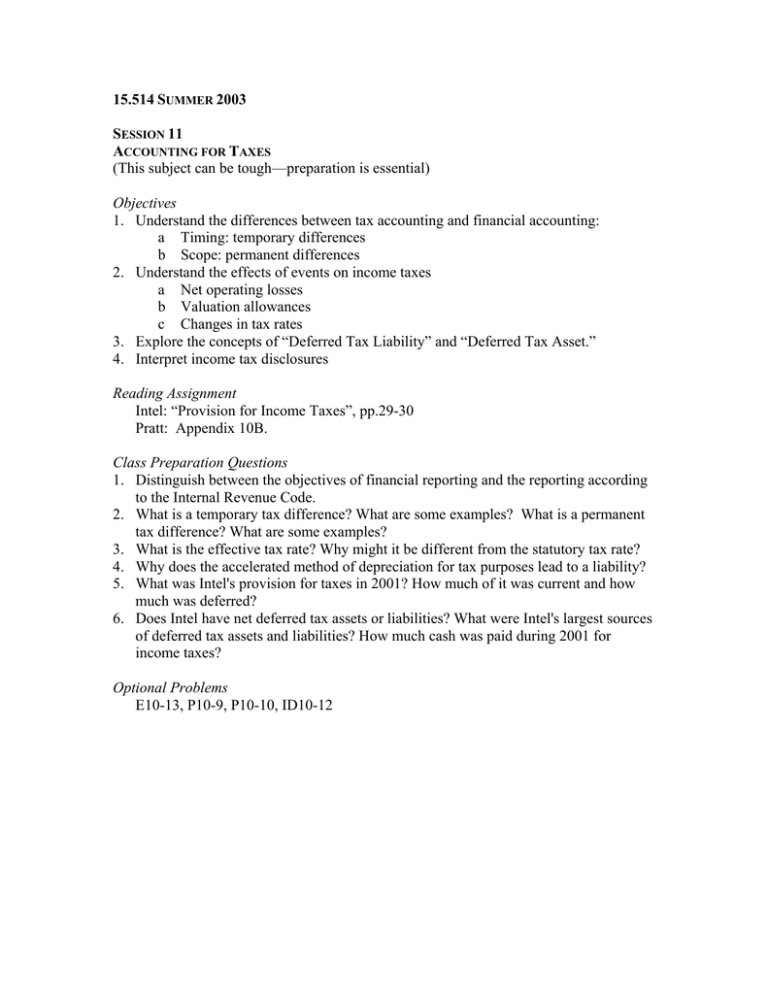
15.514 SUMMER 2003 SESSION 11 ACCOUNTING FOR TAXES (This subject can be tough—preparation is essential) Objectives 1. Understand the differences between tax accounting and financial accounting: a Timing: temporary differences b Scope: permanent differences 2. Understand the effects of events on income taxes a Net operating losses b Valuation allowances c Changes in tax rates 3. Explore the concepts of “Deferred Tax Liability” and “Deferred Tax Asset.” 4. Interpret income tax disclosures Reading Assignment Intel: “Provision for Income Taxes”, pp.29-30 Pratt: Appendix 10B. Class Preparation Questions 1. Distinguish between the objectives of financial reporting and the reporting according to the Internal Revenue Code. 2. What is a temporary tax difference? What are some examples? What is a permanent tax difference? What are some examples? 3. What is the effective tax rate? Why might it be different from the statutory tax rate? 4. Why does the accelerated method of depreciation for tax purposes lead to a liability? 5. What was Intel's provision for taxes in 2001? How much of it was current and how much was deferred? 6. Does Intel have net deferred tax assets or liabilities? What were Intel's largest sources of deferred tax assets and liabilities? How much cash was paid during 2001 for income taxes? Optional Problems E10-13, P10-9, P10-10, ID10-12
